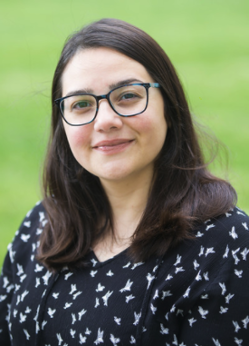The latest season of the Emory course-related podcast “Buried Truths” has won the distinguished Silver Gavel Award for Media and the Arts from the American Bar Association. The podcast draws from an undergraduate course on Civil Rights Era Cold Cases taught by Hank Klibanoff, James M. Cox Jr. Professor of Journalism and Associated Faculty in the History Department. The most recent season of “Buried Truths” centers on the shooting death of Ahmaud Arbery, an unarmed Black man killed near Brunswick, Georgia, in February of 2020. The Emory News Center recently published a feature story on the podcast and the prize. Read an excerpt below along with the full article.
“What matters most to me is that we got it right and were able to say it clearly,” Klibanoff says. “It’s thrilling to be honored for having accomplished that in telling a story that is surrounded by complicated legal matters.”
Working with five Emory undergraduates, writer Richard Halicks and the production team at public radio station WABE, Klibanoff unearthed the centuries-long roots of Arbery’s killing in a story told across seven episodes.

